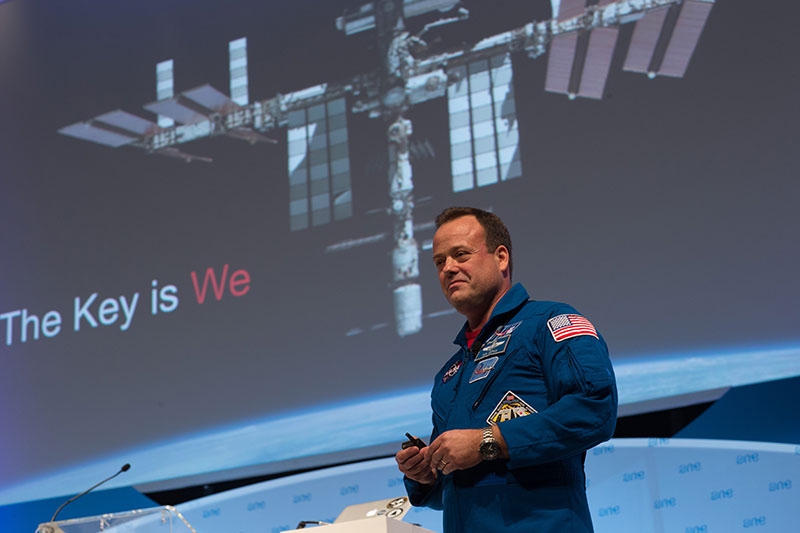 In 2011, then astronaut Ron Garan spent six months in space on the International Space Station, giving him a life-changing perspective of the world.
In 2011, then astronaut Ron Garan spent six months in space on the International Space Station, giving him a life-changing perspective of the world.
Ultimately, the experience led the adjunct professor to teach a new online course at Drexel’s College of Engineering as part of the Peace Engineering initiative. The title of the course is Introduction to the Orbital Perspective.
“The main objective of the course is to take the international collaboration that built the International Space Agency, bring it back to earth and put it in the context of our rapidly developing, hyper-interconnected global society,” says Garan, who is chief pilot of World View Enterprises and involved with several nonprofits, including Engineers Without Borders.
As he contemplated earth from his bird’s eye view of 220 miles away, he realized the beauty he saw was also marred with a world of challenges. At the same time, the former fighter pilot was working side by side with Russians, who only a few years earlier he considered “the enemy.”
“When you see the planet from space, you see how we’re all connected, all one biosphere, all of us riding on this spaceship we call Earth,” he says. “We’re all crewmates, and the secret sauce to solving problems we face is to work together.”
Back on Earth, he wrote Orbital Perspective, his 2015 book that outlines his philosophy and ways to promote peace and combat hunger, thirst, poverty, and environmental destruction.
Soon after, he heard about Drexel’s Peace Engineering program, part of an international effort with the nonprofit PeaceTech Lab, to encourage humanitarian engineers. Garan contacted Dr. Joseph Hughes, the dean of the College of Engineering whom he knew, to propose the course.
Hughes loved the idea. “He said, `Let’s do it.’” Since the new school year was about to begin in a couple of weeks, Garan assumed he would spend a few months constructing the course and teach it the next quarter. But Hughes had different ideas. “He said, `Let’s do it now.’”
In fall term 2015, fifteen Drexel students took Garan’s one-credit course through the university’s online platform, Blackboard Learn. He will teach the course again next quarter and is planning an expanded, three-credit version for the summer, 2016.
The 10-week course uses Orbital Perspective as its basis and breaks down into three parts: in “Looking Skyward,” the class learns about the hurdles the Russians and Americans had to overcome to build the Space Station; “Looking Earthward” focuses on the value of collaboration in solving current problems; and “Looking Forward,” a discussion via message boards, delved into the next steps and how shared economies can bring people together to confront challenges.
Garan also uses Altruism: The Power of Compassion to Change Yourself and the World by Matthieu Ricard. Besides the readings, students contributed to discussion forums and wrote essays as they explored the topics.
Central to the course is the notion that engineers can foster peace through solving problems, such as lack of clean water, and other issues that can boil over into conflict when left unaddressed.
Garan says, “I wanted to give the students a call to action: to leave this place better than they found it, with a feeling of hope.”
By Lini S. Kadaba